Donald Trump’s tactics to overturn election could have staying power
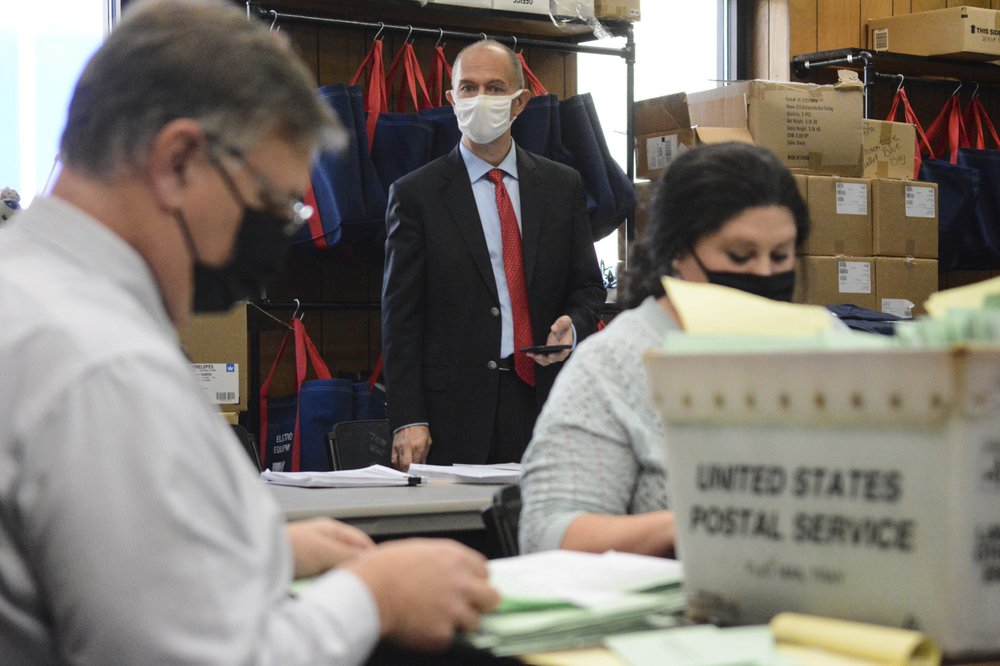
Even after he exits the White House, President Donald Trump’s efforts to challenge the legitimacy of the election and seeking to overturn the will of voters could have staying power. Trump’s tactics are already inspiring other candidates and have been embraced by a wide array of Republicans. Supporters include congressional candidates, state lawmakers, party chairs, conservative legal groups, and appointees to previously little-known state vote-certification boards. The breadth of support for Trump’s effort could be a troubling sign for future elections. “What this president is doing is poisoning democracy,” former Michigan Gov. Jennifer Granholm said. “And, yes, he is setting a precedent, suggesting that it is OK to violate these norms that have made our country great.” Granholm, a Democrat, joined with former New Jersey Gov. Christine Todd Whitman, a Republican, to raise concerns about Trump’s refusal to concede and efforts to undermine the integrity of elections. “This is not who we are as Americans, and we don’t want the public coming away from this thinking this is the norm,” said Whitman, who served in President George W. Bush’s administration. Trump and his allies have pushed conspiracies involving voting machines manipulated by dead foreign leaders and tens of thousands of fraudulent mail ballots that somehow escaped layers of security and scrutiny by election workers across the country. They have filed lawsuits without evidence, tried to pressure state lawmakers into seating their own presidential electors, and sought to influence low-level party members who sit on the state and local boards that certify election results. This is despite the fact that the federal government’s own cybersecurity arm declared the presidential election “the most secure in American history,” and Attorney General William Barr said the Department of Justice uncovered no evidence that would change the outcome. Even so, Trump has found friendly lawmakers and party officials willing to bolster his claims and adopt his tactics. On Friday, a group of 64 GOP lawmakers in Pennsylvania signed a statement urging Congress not to accept the state’s slate of electors for Democrat Joe Biden. They cited a litany of complaints over how the election was conducted. “A number of people have shown themselves willing to go along or at least being perceived of going along instead of just condemning the entire operation,” said Wendy Weiser with the Brennan Center for Justice at New York University Law School. “It was not written off as it should have been.” In recent days, lawmakers in battleground states have provided friendly forums for Trump allies to air their suspicions. A group of GOP state lawmakers in Arizona held an unofficial meeting where Trump’s lawyers repeated claims of irregularities with the state’s vote count but provided no evidence of widespread fraud. The chairwoman of the Arizona GOP asked a court to overturn Biden’s win in the state. The effort then shifted to Michigan, where Trump lawyer Rudy Giuliani appeared at a four-hour legislative hearing to argue that fraud had occurred. “Throughout this hearing, my colleagues continued to speak in circles about ‘getting to the bottom of this.’ But we’re already at the bottom, and there’s nothing down here,” said Michigan state Rep. Darrin Camilleri, a Democrat. “Down here at the bottom of all this, it’s just a dark, empty place.” On Thursday, a legislative committee in Georgia received testimony from a Trump campaign attorney about purported irregularities despite a hand count and machine audit that revealed no major problems with the vote. Election law experts say time will tell whether Trump’s approach and the support it has generated in the GOP represent a shift in how candidates handle defeat. “Next time could be worse,” constitutional law expert Edward B. Foley warned in an op-ed last week while offering praise for the few Republicans willing to stand up to Trump. Those included Georgia Secretary of State Brad Raffensperger, who certified his state’s election amid calls for his resignation from fellow Republicans and threats, and Aaron Van Langevelde, one of two Republicans on the Michigan board that certified that state’s results. While the other Republican on the Michigan board abstained, Van Langevelde said he was required under state law to certify Biden’s win. The result, Foley noted, could have easily been different if other Republicans more open to Trump’s arguments had occupied those same positions. “What makes this year’s narrow escape so unnerving is how far the plot to overthrow the election got with so little factual ammunition,” Foley said. Others believe Trump’s behavior is more of a fluke and unlikely to result in any lasting damage to the electoral process. “Everybody knows that it’s just because they lost,” said Pennsylvania Lt. Gov. John Fetterman, a Democrat. “There isn’t anyone from the president on down that genuinely believed that there was any real fraud. That’s what makes it so disingenuous.” A few candidates have followed Trump’s lead, refusing to concede and seeking extraordinary measures to address their concerns. A Pennsylvania congressional candidate who lost his race has yet to concede and signed on to a lawsuit challenging the validity of all mail ballots cast this year. A Republican candidate for U.S. Senate in Michigan called on the state to take the unprecedented step of delaying certification so an audit could be done — despite an extensive county canvassing process that did not find significant irregularities. He ultimately conceded. Using the 2020 election as a springboard to create more trust in the process would help, said David Carroll, head of the democracy program at the Carter Center, founded by former President Jimmy Carter and his wife, Rosalynn. That could involve requiring state and local election officials to be nonpartisan and appointed rather than elected by party, clarifying vague election laws, implementing federal standards for parts of the process, and ensuring more training for election workers and volunteers. “There was a lot of discussion before the election that the process might not be credible. Those are the things we see around the world where democracy is weak,” Carroll said. “It will be important for us to sit down as a nation and as a society and say we don’t want this
University of Alabama student takes center stage in Georgia lawsuit and rally
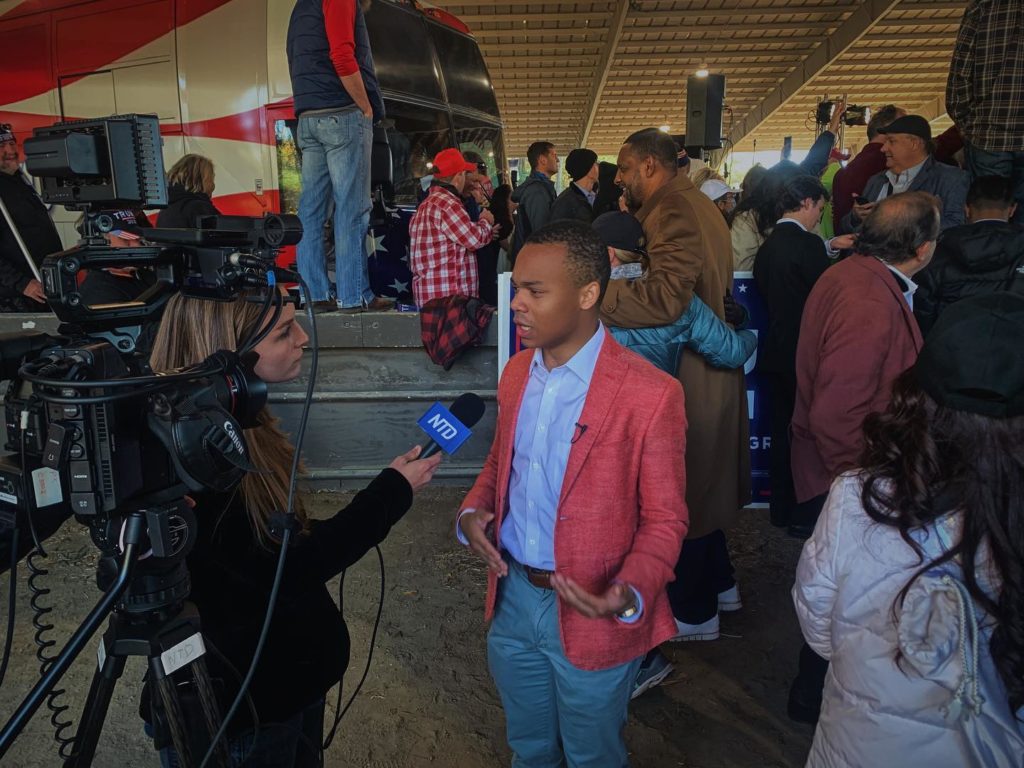
C.J. Pearson began his career in politics at an early age after being inspired by a mock election in his Georgia elementary school. Since then, he has become a well-known political activist and the president of the Free Thinkers, a group he founded. He’s currently a freshman at the University of Alabama and was recently nominated to serve as an elector for the state of Georgia. On Wednesday, Pearson spoke at a Stop the Steal rally in Alpharetta, Georgia, led by Sidney Powell. While Powell has helped Donald Trump’s attorney Rudy Giuliani, she doesn’t work directly for Trump. According to Fox News, Powell has made several unsubstantiated claims that the presidential election was fraudulent and that Dominion’s voting machines were to blame. At a press conference Wednesday, Powell and fellow pro-Trump attorney Lin Wood told the crowd to not vote in the upcoming U.S. senate runoff on Jan. 5 in Georgia until the state changes its procedures and ends the use of Dominion voting machines. “I would encourage all Georgians to make it known that you will not vote at all until your vote is secure – and I mean that regardless of party,” Powell said. “We can’t live in a republic, a free republic, unless we know our votes are legal and secure. So we must have voter ID, and we probably must go back to paper ballots that are signed and have your thumbprint on them. We certainly should be able to find a system that can count them, even if it has to be done by hand.” Pearson tweeted a video of the rally and stated, “We are no longer the party of John McCain. We are no longer the party of Mitt Romney. We are no longer a party of cowards. We are the party of @RealDonaldTrump.” http:// We are no longer the party of John McCain. We are no longer the party of Mitt Romney. We are no longer a party of cowards. We are the party of @realDonaldTrump. pic.twitter.com/tqx6aiNgfd — CJ Pearson (@thecjpearson) December 2, 2020 Trump’s legal team, headed by Giuliani, has made several unsuccessful court challenges in several states, arguing voter fraud. Attorney General William Barr stated that the Justice Department hasn’t found widespread voter fraud that would change the outcome of the election. Pearson is named as a plaintiff in Pearson v. Kemp, a lawsuit filed in the United States District Court for the Northern District of Georgia. The lawsuit alleges voting irregularities in the presidential election. Governor Brian Kemp is named as one of the defendants. Pearson isn’t without controversy. In 2015, when he was just 13 years old, he gained notoriety for criticizing then-President Barack Obama in a highly viewed youtube video. After that, he accused Obama of blocking him on his official presidential Twitter account. Obama hadn’t blocked him, and a backlash ensued. Benji Backer, a young political activist who left the public spotlight, commented on the controversy, “I tried to give CJ advice,” Backer wrote. “And I know he’s going to lash out at me now. But we used to work together. I told him he had promise but that he had to keep it in perspective, truth [sic] and stay humble. Stardom can ruin those things and it did for him. CJ & I (when I was still in politics) were going to work on some things. But he didn’t like advice and he wanted ‘his brand’ to grow instead. People, including myself, tried to help CJ. I really thought he could do great things. But he wasn’t willing to listen. Most of all, CJ lied to me. Numerous times. And many people I know and love. That’s when I knew there was a problem.”
William Barr appoints special counsel in Russia probe investigation

Attorney General William Barr has given extra protection to the prosecutor he appointed to investigate the origins of the Trump-Russia probe, granting him authority to complete the work without being easily fired. Barr told The Associated Press on Tuesday that he had appointed U.S. Attorney John Durham as a special counsel in October under the same federal regulations that governed special counsel Robert Mueller in the original Russia probe. He said Durham’s investigation has been narrowing to focus more on the conduct of FBI agents who worked on the Russia investigation, known by the code name of Crossfire Hurricane. Under the regulations, a special counsel can be fired only by the attorney general and for specific reasons such as misconduct, dereliction of duty, or conflict of interest. An attorney general must document such reasons in writing. The FBI in July 2016, began investigating whether the Trump campaign was coordinating with Russia to sway the outcome of the presidential election. That probe was inherited nearly a year later by special counsel Mueller, who ultimately did not find enough evidence to charge Donald Trump or any of his associates with conspiring with Russia. The early months of the investigation, when agents obtained secret surveillance warrants targeting a former Trump campaign aide, have long been scrutinized by the president and other critics of the probe who say the FBI made significant errors. An inspector general report last year backed up that criticism but did not find evidence that mistakes in the surveillance applications and other problems with the probe were driven by partisan bias. Barr decided “the best thing to do would be to appoint them under the same regulation that covered Bob Mueller, to provide Durham and his team some assurance that they’d be able to complete their work regardless of the outcome of the election,” he said Tuesday. President-elect Joe Biden’s transition team didn’t immediately comment on the appointment. The current investigation, a criminal probe, had begun very broadly but has since “narrowed considerably” and now “really is focused on the activities of the Crossfire Hurricane investigation within the FBI,” Barr said. He said he expects Durham would detail whether any additional prosecutions will be brought and make public a report of the investigation’s findings. Durham’s investigation has resulted in one prosecution so far: a guilty plea by a former FBI lawyer who admitted altering an email. In an Oct. 19 order, obtained by The Associated Press, Barr says Durham is authorized “to investigate whether any federal official, employee or any person or entity violated the law in connection with the intelligence, counter-intelligence or law enforcement activities” directed at the 2016 presidential campaigns, anyone associated with the campaigns or the Trump administration. House Judiciary Committee Chairman Jerrold Nadler, D-N.Y., said the appointment erodes trust in the Justice Department, and he questioned how it was allowed under the special counsel rules. “And we should not lose sight of the larger picture: in the waning days of the Trump administration, the attorney general has once again used the powers of his office to settle old scores for the president,” Nadler said. The special counsel rules say the appointed person should be outside of government, but Barr pointed to specific provisions in his memo that would allow him to go around that rule. A senior Justice Department official told the AP that although the order details that it is “including but not limited to Crossfire Hurricane and the investigation of Special Counsel Robert S. Mueller III,” the Durham probe has not expanded. The official said that line specifically relates to FBI personnel who worked on the Russia investigation before the May 2017 appointment of Mueller, a critical area of scrutiny for the Justice Department inspector general, which identified a series of errors and omissions in surveillance applications targeting former Trump campaign aide Carter Page. The focus on the FBI, rather than the CIA and the intelligence community, suggests that Durham may have moved past some of the more incendiary claims that Trump supporters had hoped would yield allegations of misconduct or even crimes — namely, the question of how intelligence agencies reached their conclusion that Russia had interfered in the 2016 election. Republicans lauded the appointment. Senate Judiciary Chairman Lindsey Graham said it was “obvious the system failed,” and he concurred with the appointment of a special counsel to continue the investigation. Republished with the permission of the Associated Press.
Disputing Donald Trump, William Barr says no widespread election fraud
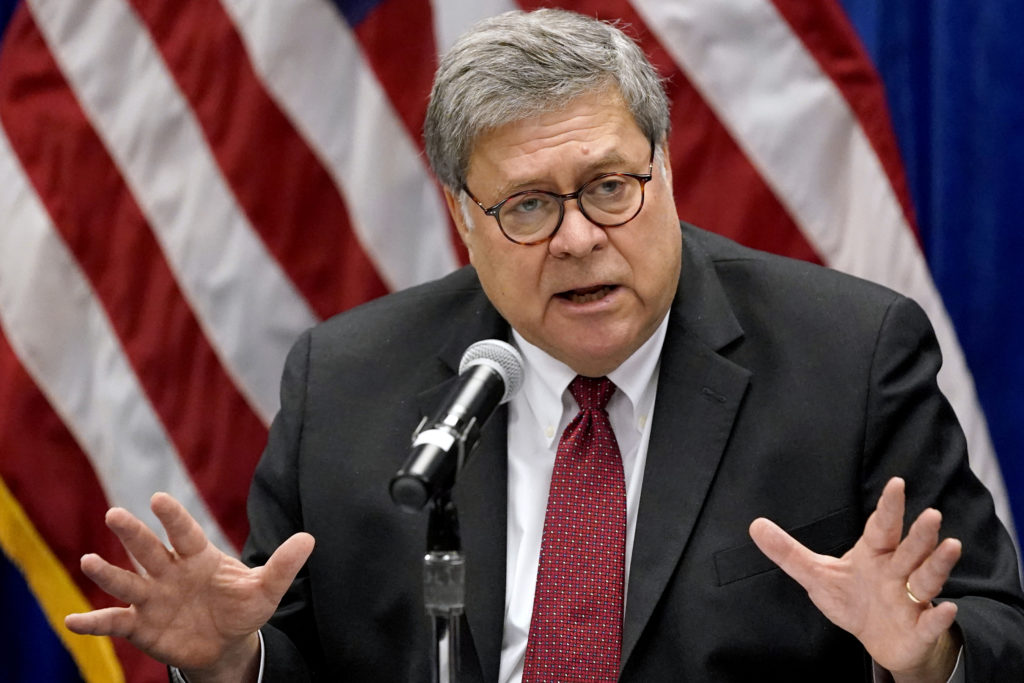
Disputing President Donald Trump’s persistent, baseless claims, Attorney General William Barr declared the U.S. Justice Department has uncovered no evidence of widespread voter fraud that could change the outcome of the 2020 election. Barr’s comments, in an interview Tuesday with The Associated Press, contradict the concerted effort by Trump, his boss, to subvert the results of last month’s voting and block President-elect Joe Biden from taking his place in the White House. Barr told the AP that U.S. attorneys and FBI agents have been working to follow up specific complaints and information they’ve received, but “to date, we have not seen fraud on a scale that could have effected a different outcome in the election.” The comments, which drew immediate criticism from Trump attorneys, were especially notable coming from Barr, who has been one of the president’s most ardent allies. Before the election, he had repeatedly raised the notion that mail-in voting could be especially vulnerable to fraud during the coronavirus pandemic as Americans feared going to the polls and instead chose to vote by mail. More to Trump’s liking, Barr revealed in the AP interview that in October he had appointed U.S. Attorney John Durham as a special counsel, giving the prosecutor the authority to continue to investigate the origins of the Trump-Russia probe after Biden takes over and making it difficult to fire him. Biden hasn’t said what he might do with the investigation, and his transition team didn’t comment Tuesday. Trump has long railed against the investigation into whether his 2016 campaign was coordinating with Russia, but he and Republican allies had hoped the results would be delivered before the 2020 election and would help sway voters. So far, there has been only one criminal case, a guilty plea from a former FBI lawyer to a single false statement charge. Under federal regulations, a special counsel can be fired only by the attorney general and for specific reasons such as misconduct, dereliction of duty, or conflict of interest. An attorney general must document such reasons in writing. Barr went to the White House Tuesday for a previously scheduled meeting that lasted about three hours. Trump didn’t directly comment on the attorney general’s remarks on the election. But his personal attorney Rudy Giuliani and his political campaign issued a scathing statement claiming that, “with all due respect to the Attorney General, there hasn’t been any semblance” of an investigation into the president’s complaints. Other administration officials who have come out forcefully against Trump’s allegations of voter-fraud evidence have been fired. But it’s not clear whether Barr might suffer the same fate. He maintains a lofty position with Trump, and despite their differences, the two see eye-to-eye on quite a lot. Still, Senate Democratic leader Chuck Schumer quipped: “I guess he’s the next one to be fired.” Last month, Barr issued a directive to U.S. attorneys across the country allowing them to pursue any “substantial allegations” of voting irregularities before the 2020 presidential election was certified, despite no evidence at that time of widespread fraud. That memorandum gave prosecutors the ability to go around longstanding Justice Department policy that normally would prohibit such overt actions before the election was certified. Soon after it was issued, the department’s top elections crime official announced he would step aside from that position because of the memo. The Trump campaign team led by Giuliani has been alleging a widespread conspiracy by Democrats to dump millions of illegal votes into the system with no evidence. They have filed multiple lawsuits in battleground states alleging that partisan poll watchers didn’t have a clear enough view at polling sites in some locations and therefore something illegal must have happened. The claims have been repeatedly dismissed including by Republican judges who have ruled the suits lacked evidence. But local Republicans in some battleground states have followed Trump in making unsupported claims, prompting grave concerns over potential damage to American democracy. Trump himself continues to rail against the election in tweets and in interviews though his own administration has said the 2020 election was the most secure ever. He recently allowed his administration to begin the transition over to Biden, but he still refuses to admit he lost. The issues they have pointed to are typical in every election: Problems with signatures, secrecy envelopes, and postal marks on mail-in ballots, as well as the potential for a small number of ballots miscast or lost. But they’ve gone further. Attorney Sidney Powell has spun fictional tales of election systems flipping votes, German servers storing U.S. voting information and election software created in Venezuela “at the direction of Hugo Chavez,” – the late Venezuelan president who died in 2013. Powell has since been removed from the legal team after an interview she gave where she threatened to “blow up” Georgia with a “biblical” court filing. Barr didn’t name Powell specifically but said: “There’s been one assertion that would be systemic fraud and that would be the claim that machines were programmed essentially to skew the election results. And the DHS and DOJ have looked into that, and so far, we haven’t seen anything to substantiate that.” In the campaign statement, Giuliani claimed there was “ample evidence of illegal voting in at least six states, which they have not examined.” “We have many witnesses swearing under oath they saw crimes being committed in connection with voter fraud. As far as we know, not a single one has been interviewed by the DOJ. The Justice Department also hasn’t audited any voting machines or used their subpoena powers to determine the truth,” he said. However, Barr said earlier that people were confusing the use of the federal criminal justice system with allegations that should be made in civil lawsuits. He said a remedy for many complaints would be a top-down audit by state or local officials, not the U.S. Justice Department. “There’s a growing tendency to use the criminal justice system as sort of a default fix-all,” he said, but first there must be a basis to believe there is a crime to investigate. “Most claims
States cite smooth election, despite Donald Trump’s baseless claims
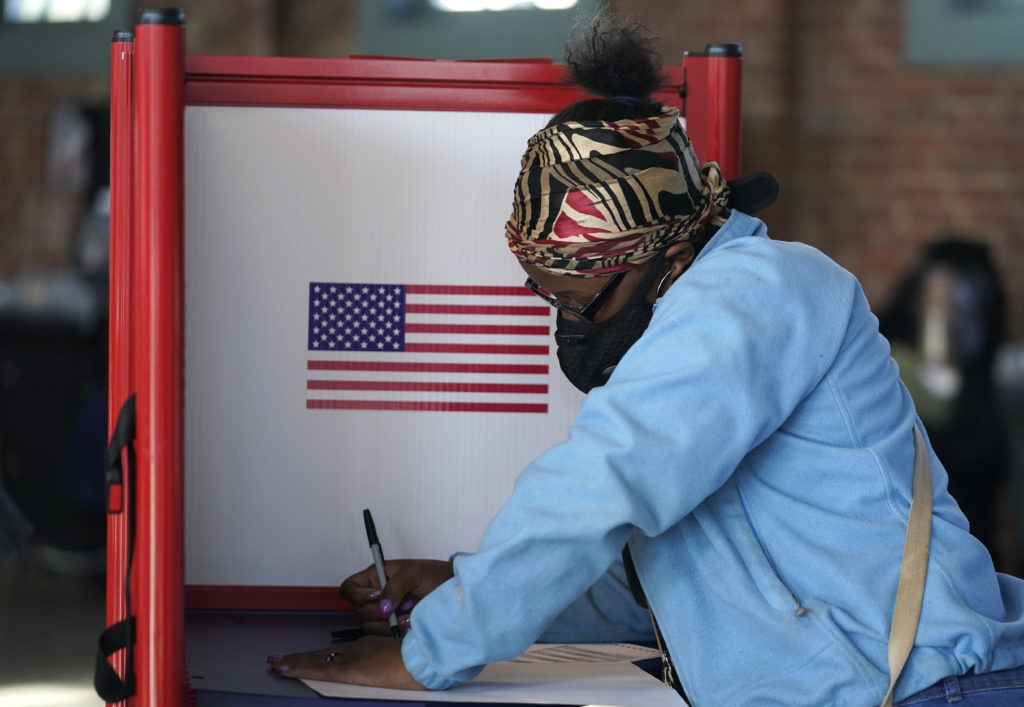
The 2020 election unfolded smoothly across the country and without any widespread irregularities, according to state officials and election experts, a stark contrast to the baseless claims of fraud being leveled by President Donald Trump following his defeat. Election experts said the large increase in advance voting — 107 million people voting early in person and by mail — helped take pressure off Election Day operations. There were also no incidents of violence at the polls or voter intimidation. “The 2020 general election was one of the smoothest and most well-run elections that we have ever seen, and that is remarkable considering all the challenges,” said Ben Hovland, a Democrat appointed by Trump to serve on the Election Assistance Commission, which works closely with officials on election administration. Following Democrat Joe Biden’s victory, Trump has sought to discredit the integrity of the election and argued without evidence that the results will be overturned. Republican lawmakers have said the president should be allowed to launch legal challenges, though many of those lawsuits have already been turned away by judges and those that remain do not include evidence of problems that would change the outcome of the race. In Wisconsin, a battleground state where Biden narrowly edged Biden, top election official Meagan Wolfe said there were no problems with the election reported to her office and no complaints filed alleging any irregularities. Michigan Attorney General Dana Nessel, a Democrat, said the same was true in her state, which Biden also won. “Let me be clear — the November elections in Michigan ran as smoothly as ever,” Nessel said, adding that there were no “instances of irregularities in the process of counting the votes, only evidence-free allegations, wild speculation, and conspiracy theories.” Ahead of Election Day, the pandemic upended longstanding voting plans and forced election officials to make systemic changes largely on the fly. They did so with limited federal money to cover increased costs for mail ballots, which take more staff and money to send, process, and count. After problems erupted during spring primaries, the nation worried whether election officials could pull off a problem-free presidential election during a pandemic while confronting the threat of foreign interference from sophisticated adversaries led by Russia. “In the spring, there were just so many challenges we were facing, and we were just wondering how we were going to manage to do it,” said Larry Norden, an elections expert with the Brennan Center for Justice. “It’s an incredible story.” Long before a single ballot was cast, Trump raised questions about the integrity of the election and railed against mail voting despite a long history of mail ballots being used successfully in this country. At one point, he claimed the only way he could lose was if the election were rigged. Some states that expanded mail-in voting to make it safer to cast a ballot during the virus outbreak lean Republican and voted for Trump — Nebraska, North Dakota and Montana. He has raised no concerns about the results there. On Monday, Attorney General William Barr authorized federal prosecutors across the U.S. to probe “substantial allegations” of voting irregularities. The groundless claims pushed by Trump and his allies about voting and ballot counting have only intensified since The Associated Press and other news organizations called the race Saturday for Biden, who leads in both the popular vote and in the Electoral College. Among the many lawsuits filed since Election Day is one in Nevada by the Trump campaign alleging voter fraud. Without explanation, Trump tweeted that the state is “turning out to be a cesspool of Fake Votes.” Such claims have put pressure on Republican election officials fielding scores of reports of fraud that so far have turned out to be human error or limited in scope. Nevada Secretary of State Barbara Cegavske, a Republican, said her office wouldn’t quantify how many complaints it had received, adding, “Many voter fraud complaints lack any evidence and are more complaints about process or policy.” In Iowa, Secretary of State Paul Pate, a Republican, ordered all counties in the state to double-check results after a data entry error was discovered in one precinct. “These human errors are unfortunate and frustrating, but the system is working,” he said. On Monday, Georgia’s two U.S. senators, both Trump supporters facing close runoff elections that could determine which party controls the Senate next year, called on the state’s top election official, a fellow Republican, to resign over unspecified claims of election mismanagement. The official, Secretary of State Brad Raffensperger, said he would not step down and assured the public there had been no widespread problems. “Was there illegal voting? I’m sure there was, and my office is investigating all of it,” Raffensperger said. “Does it rise to the numbers or margin necessary to change the outcome to where President Trump is given Georgia’s electoral votes? That is unlikely.” Studies have repeatedly shown that voter fraud is exceptionally rare. Much of Trump’s ire has centered on Pennsylvania, where the campaign has launched multiple lawsuits despite no indications of fraud or large-scale problems. “On Election Day, we didn’t have any reports of anything significant,” said Lisa Schaefer, who leads the bipartisan County Commissioners Association of Pennsylvania. “We have every reason to have confidence in the result of this election, as we do every other election.” Some incidents did get attention: In some Ohio and Texas counties, electronic poll books used to check in voters were sidelined when polls opened because they were still downloading a database update. That forced officials turn to paper backups or extend voting hours on Election Day. Some Georgia counties also grappled with poll book issues and with ballot-processing difficulties in a new statewide voting system. That said, the errors seemed to have occurred at lower rates than in most elections, University of Iowa computer scientist Doug Jones said. “The practical consequence of Trump’s call to vigilance to prevent fraud was increased scrutiny from both sides, and this increased scrutiny seems
Ex-Donald Trump adviser Steve Bannon charged in border wall scheme
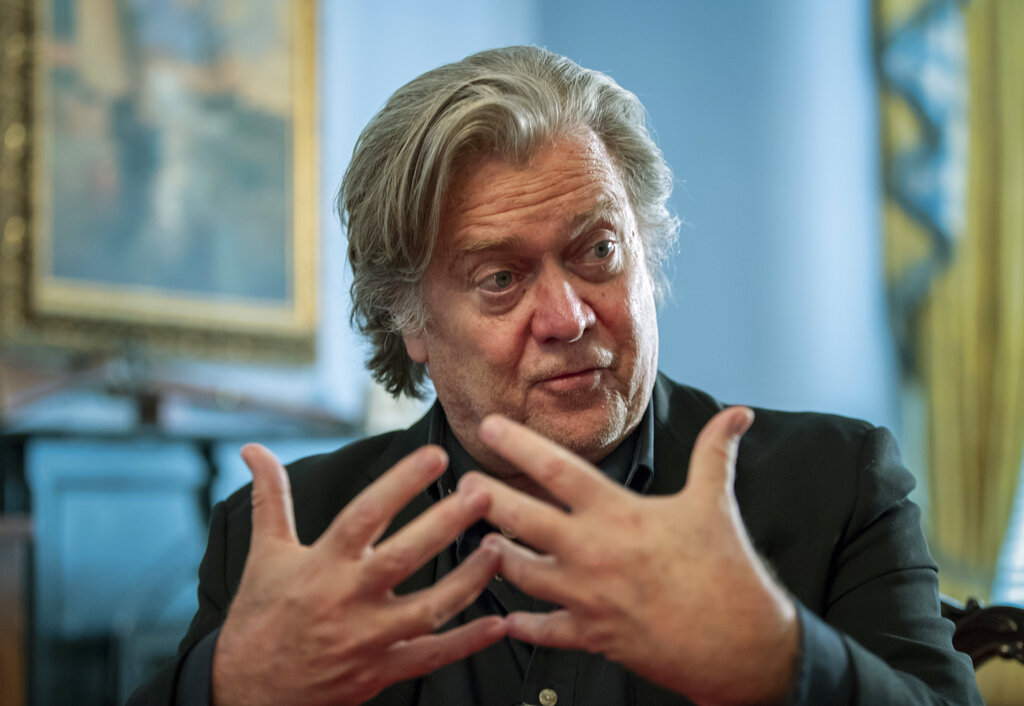
The arrests make Bannon the latest addition to a startlingly long list of Trump associates who have been prosecuted.
Donald Trump deploys more federal agents under ‘law-and-order’ push
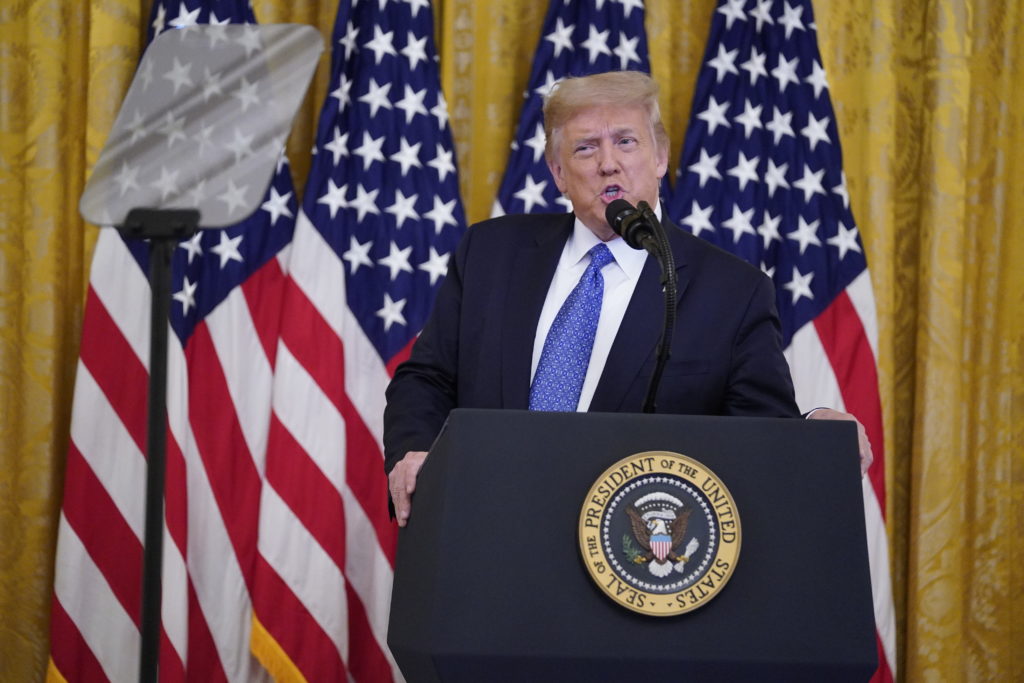
President Donald Trump announced Wednesday that he will send federal agents to Chicago and Albuquerque, New Mexico, to help combat rising crime, expanding the administration’s intervention into local enforcement as he runs for reelection under a “law-and-order” mantle. Using the same alarmist language he has employed to describe illegal immigration, Trump painted Democrat-led cities as out of control and lashed out at the “radical left,” which he blamed for rising violence in some cities, even though criminal justice experts say it defies easy explanation. “In recent weeks there has been a radical movement to defund, dismantle and dissolve our police department,” Trump said at a White House event, blaming the movement for “a shocking explosion of shootings, killings, murders and heinous crimes of violence.” “This bloodshed must end,” he said. “This bloodshed will end.” The decision to dispatch federal agents to American cities is playing out at a hyper-politicized moment when Trump is grasping for a new reelection strategy after the coronavirus upended the economy, dismantling what his campaign had seen as his ticket to a second term. With less than four months until Election Day, Trump has been warning that violence will worsen if his Democratic rival Joe Biden is elected in November and Democrats have a chance to make the police reforms they have endorsed after the killing of George Floyd and nationwide protests demanding racial justice. Crime began surging in some cities like Chicago, New York, and Philadelphia when stay-at-home orders lifted. Criminal justice experts seeking answers have pointed to the unprecedented moment: a pandemic that has killed over 140,000 Americans, historic unemployment, a mass reckoning over race and police brutality, intense stress, and even the weather. Compared with other years, crime in 2020 is down overall. The plan Trump announced Wednesday expands an existing program that sent hundreds of federal agents to Kansas City, Missouri, after a 4-year-old boy’s shooting death to help quell a record rise in violence. Sending federal agents to help localities is not uncommon; Attorney General William Barr announced a similar surge effort in December for seven cities with spiking violence. But this effort will include at least 100 Department of Homeland Security Investigations officers who generally conduct drug trafficking and child exploitation investigations, in addition to personnel under the Justice Department umbrella. DHS officers have already been dispatched to Portland, Oregon, and other localities to protect federal property and monuments as Trump has lambasted efforts by protesters to knock down Confederate statutes. Local authorities there have complained that agents have exacerbated tensions on the streets, while residents have accused the government of violating their constitutional rights. Indeed, civil unrest escalated after federal agents were accused of whisking people away in unmarked cars without probable cause. Since the racial justice protests began, Trump’s campaign has leaned heavily into a pledge to maintain “law and order” as it has tried to tie Joe Biden to a small group of radicals and anarchists it claims is trying to destabilize America’s cities and rewrite history. The campaign believes the push can help Trump by drumming up support from suburban and older voters who may be rattled by violent images, which have been broadcast often by conservative media outlets. In Chicago, Democratic Mayor Lori Lightfoot, who had initially blasted the news, said the U.S. attorney’s office will supervise the additional agents joining existing federal law enforcement offices. “If those agents are here to actually work in partnership on support of gun violence and violent cases, plugging into existing infrastructure of federal agents, not trying to play police in our streets, then that’s something different,” she said, while also accusing the president of trying to distract from scrutiny of the federal response to the pandemic. In New Mexico, Democratic elected officials had cautioned Trump against sending in federal agents, with U.S. Sen. Martin Heinrich calling on Bernalillo County Sheriff Manny Gonzales to resign for attending the White House event. “Instead of collaborating with the Albuquerque Police Department, the Sheriff is inviting the President’s stormtroopers into Albuquerque,” Heinrich said in a statement. Acting Homeland Security Secretary Chad Wolf drew a distinction between the mission in Portland — to protect federal property — and the surges in Kansas City, Chicago and Albuquerque to help stop violence. Albuquerque and Chicago will be getting millions of dollars for new officers, and the Justice Department will reimburse Chicago $3.5 million for local law enforcement’s work on the federal task force. In Kansas City, the top federal prosecutor said any agents involved in an operation to reduce violent crime in the area will be clearly identifiable when making arrests, unlike what has been seen in Portland. Hundreds of extra agents have been sent. “These agents won’t be patrolling the streets,” U.S. Attorney Timothy Garrison said. “They won’t replace or usurp the authority of local officers.” Operation Legend — named after 4-year-old LeGend Taliferro, who was fatally shot while sleeping in a Kansas City apartment last month — was announced July 8. “My one and only child who fought through open heart surgery at four months is gone due to senseless gun violence,” LeGend’s mother, Charon Powell, said at the White House. “Children are supposed to be our future and our son didn’t make it to kindergarten.” This story has been corrected to delete an incorrect reference to more than 200 arrests being made in Kansas City; that figure includes arrests going back to December 2019. Republished with the permission of the Associated Press.
Personnel Update: U.S. Attorney Jay Town stepping down

Town was appointed U.S. Attorney by President Donald Trump on June 12, 2017.
Mail voting: Mike Pence, aides embrace practice panned by Donald Trump
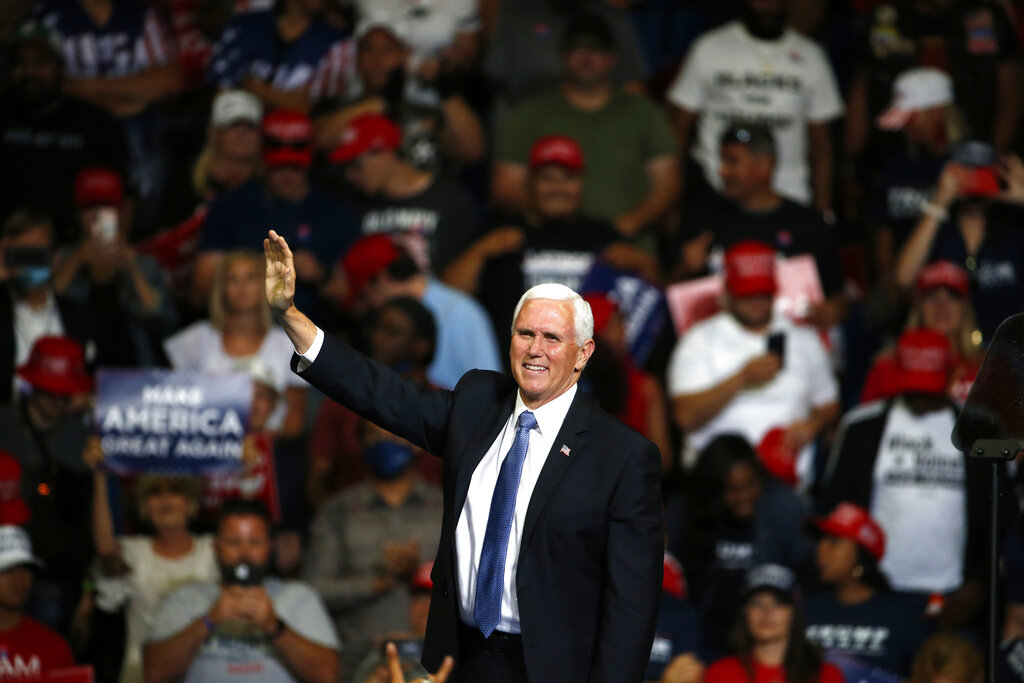
More than three years after leaving the Indiana governor’s residence, Mike Pence still lists that as his official residence and votes absentee accordingly.
John Bolton says Donald Trump asked China to help him get reelected
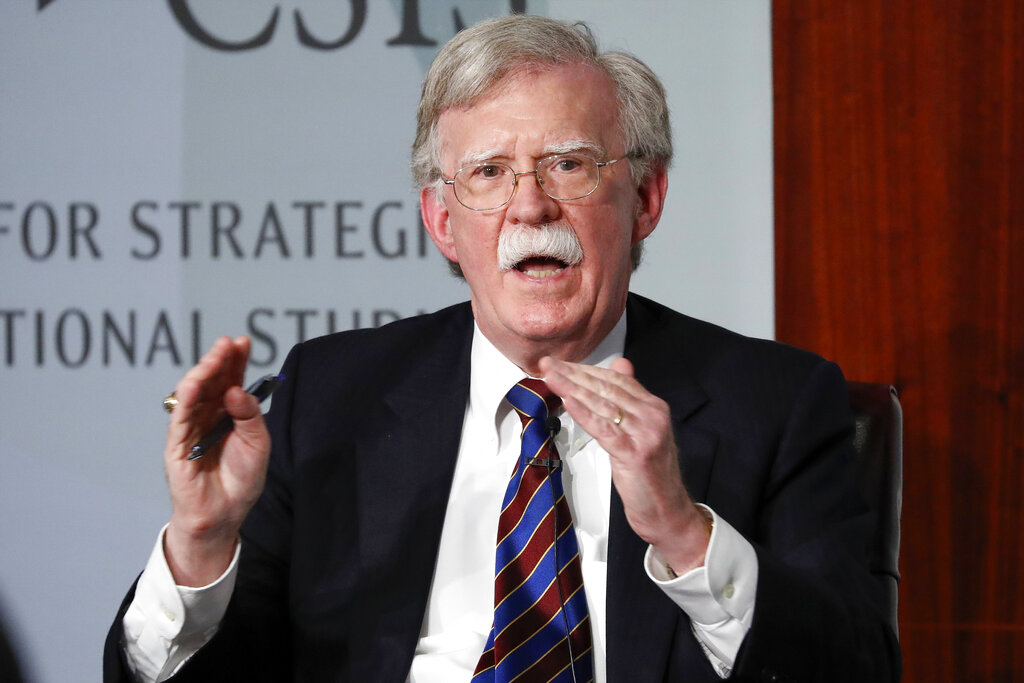
The White House worked furiously to block the book, asking a federal court for an emergency temporary restraining order Wednesday against its release.
Ex-judge says push to dismiss Michael Flynn case is abuse of power
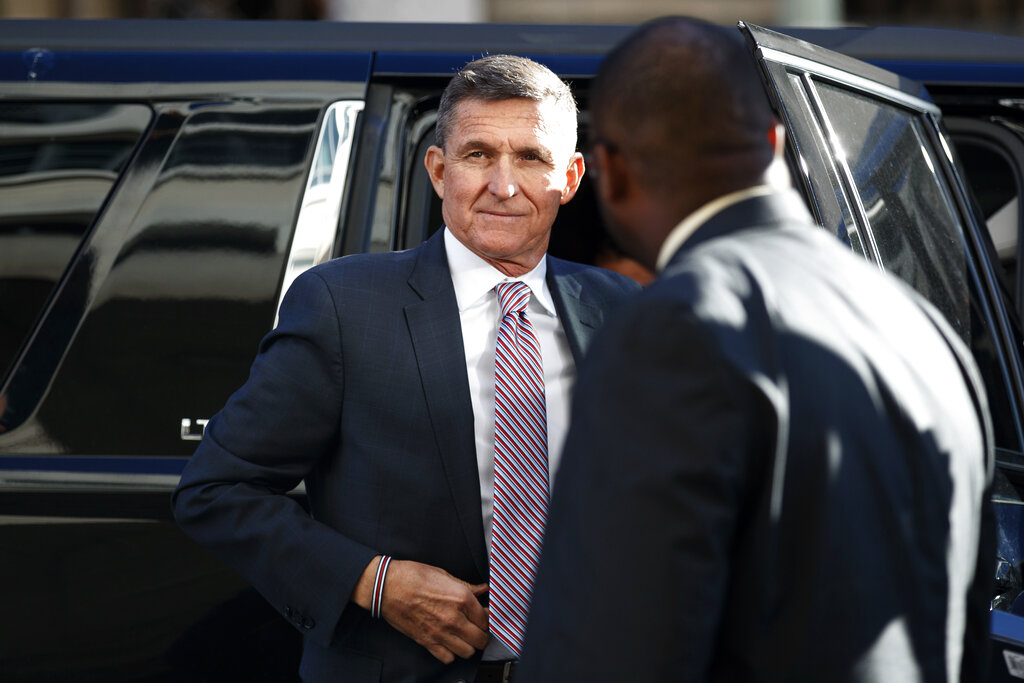
The ex-judge said that the government “has engaged in highly irregular conduct to benefit a political ally of the President.”
Bill Barr says he doesn’t envision investigations of Joe Biden, Barack Obama
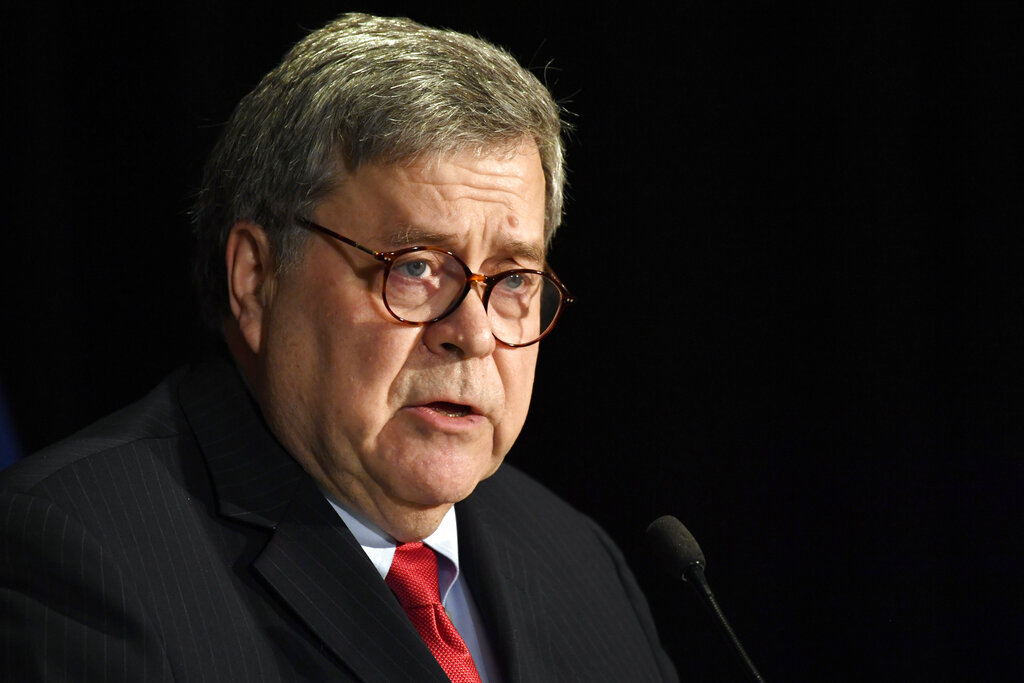
Trump has stated without evidence that he believes Obama committed unspecified crimes as president.


